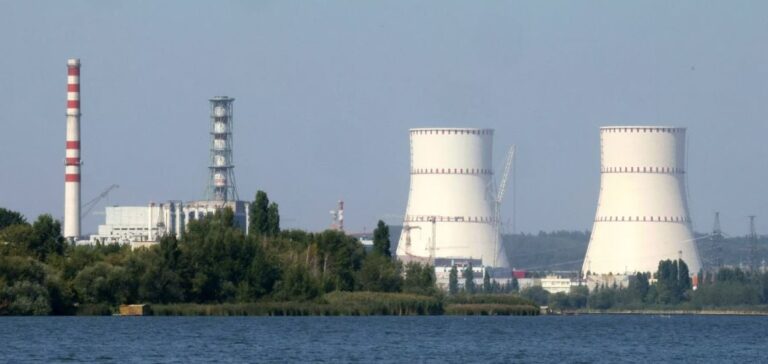The IAEA, headed by Rafael Grossi, is stepping up its inspections of the Kursk nuclear power plant near the Ukrainian border.
The Ukrainian offensive, which began on August 6, 2024, is getting dangerously close to this strategic facility.
Nuclear safety risks are of concern to the international community, as Ukrainian drone fragments are found in the vicinity of the plant.
These developments are forcing the IAEA to maintain heightened vigilance in assessing potential risks.
The Kursk plant, with its RBMK reactors similar to those at Chernobyl, is at the heart of the concerns. Nuclear safety experts stress the need to protect this infrastructure, while minimizing the risk of a catastrophe.
The IAEA is calling for maximum restraint on all sides to prevent any incident with potentially serious consequences.
Strategic and security implications
Due to its geographical position, the Kursk region is of strategic importance for both Ukrainian and Russian forces.
For Ukraine, the aim is to create a buffer zone, limiting Russia’s ability to conduct military operations on its territory.
On the Russian side, the protection of critical infrastructure, such as nuclear power plants, is a priority.
Nuclear security is therefore becoming a major issue, requiring enhanced international coordination.
Experts point out that, despite improvements in reactor safety since Chernobyl, the threat of a nuclear incident cannot be totally ruled out.
Spent fuel storage facilities, in particular, represent potential targets in the event of an escalation of the conflict.
The IAEA, as an independent authority, plays a key role in monitoring and assessing risks in this complex situation.
Impact on energy security
The situation at Kursk also raises questions about energy security in wartime.
Protecting nuclear power plants is essential to avoid disruptions to energy supplies, which could have far-reaching repercussions.
Current events demonstrate the fragility of critical infrastructures in the face of armed conflict, underlining the need for robust strategies to guarantee their security.
The IAEA’s actions are aimed at averting a major energy crisis, while maintaining regional stability.
The Ukrainian and Russian authorities are aware of the risks associated with any attack on nuclear facilities, but the dynamics of the conflict demand continued vigilance.
The assessment underway at Kursk is therefore crucial to prevent any deterioration in the situation.






















